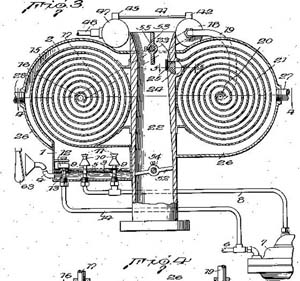You may be too young to remember the “Miracle 100 mile per gallon carburetor” that was routinely offered to desperate motorists during the twin oil shocks of the 1970s – but don’t worry, there are plenty of scam artists trying to make a quick buck taking advantage of the latest run-up in oil prices.
As fuel costs surge towards $4 a gallon nationwide – with some analysts forecasting $5 before things settle down – fuel economy has become the hot topic of conversation. Automakers report it’s the top item on most customers’ shopping lists. And it’s sending millions of existing owners scrambling to find ways to improve the mileage of the vehicles they have.
Yes, there are plenty of ways to improve your fuel economy – like eliminating jack-rabbit starts and keeping your car in tune, but experts warn that there are few, if any, devices that you can simply plug in, screw on or pour into the gas tank that will make any difference – except giving your hard-earned money to some scam artist.
“The only devices that I have seen work are cold air intakes that can increase fuel economy modestly but normally they are sold to increase power”, said Michael Evans, Executive Vice President of Atlas Oil in Taylor, Michigan.
The Better Business Bureau, meanwhile, has issued a warning to drivers to ignore ads like one boasting, “Instant Mileage Gains up to 35%,” or another that claims you can “Gain up to 6+ MPG Now.” They may catch your eye, but they simply don’t work, the experts claim.
The Environmental Protection Agency has tested more than 100 devices claiming to improve mileage, but while a few yielded the most marginal results, none came close to meeting their claims – nor yielding enough of an improvement to cover their initial cost, according to the BBB.
How do you flag a scam? Look for these red flags:
- Federal Endorsement. “Government-approved,” “EPA-certified,” and other claims should send you running. The EPA does set federal mileage standards and certify individual vehicle mileage, but the feds do not certify fuel-saving devices;
- Results too Good to be True. Automakers will invest $100s of dollars into a new transmission design to gain 1 or 2 mpg. Why would they do that if a “miracle” magnet attached to a fuel injector could deliver an extra 5 mpg?
- Spam is Usually a Scam. You don’t believe those spam ads claiming to add inches to various body parts – do you? – so why believe something from a spammer will boost mileage by 40%
- Glowing Testimonials. “Helen S.”, of Butte, Montana, claims she got an extra 10 mpg with a fuel tank additive. But who is Helen? These consumer testimonials are likely as phony as the false federal endorsements.
Ironically, many motorists may be taking one of the simplest and most effective steps to holding down fuel costs, says Atlas Oil’s Evans. When fuel prices are lower, drivers often opt for higher octane gas than the manufacturer recommends, whether hoping for better performance or simply to “treat” the family chariot.
That’s simply throwing money away. Stick to the octane recommended by the manufacturer. In fact, some provide a range, say 89 to 93 octane. You may lose a little performance, but you can also save a dime or more a gallon by opting for the lower, approved octane.
Change your oil, as recommended, using the right viscosity; check your air filter and replace, if necessary; and keep your engine in tune to ensure maximum performance, mileage – and vehicle life.
And here’s perhaps the one miracle claim that happens to be true: you can improve your mileage by as much as 10% by making sure your tires are properly inflated. They’ll also last longer, deliver a better ride – and improve your vehicle’s handling, which means a safer ride, as well.

